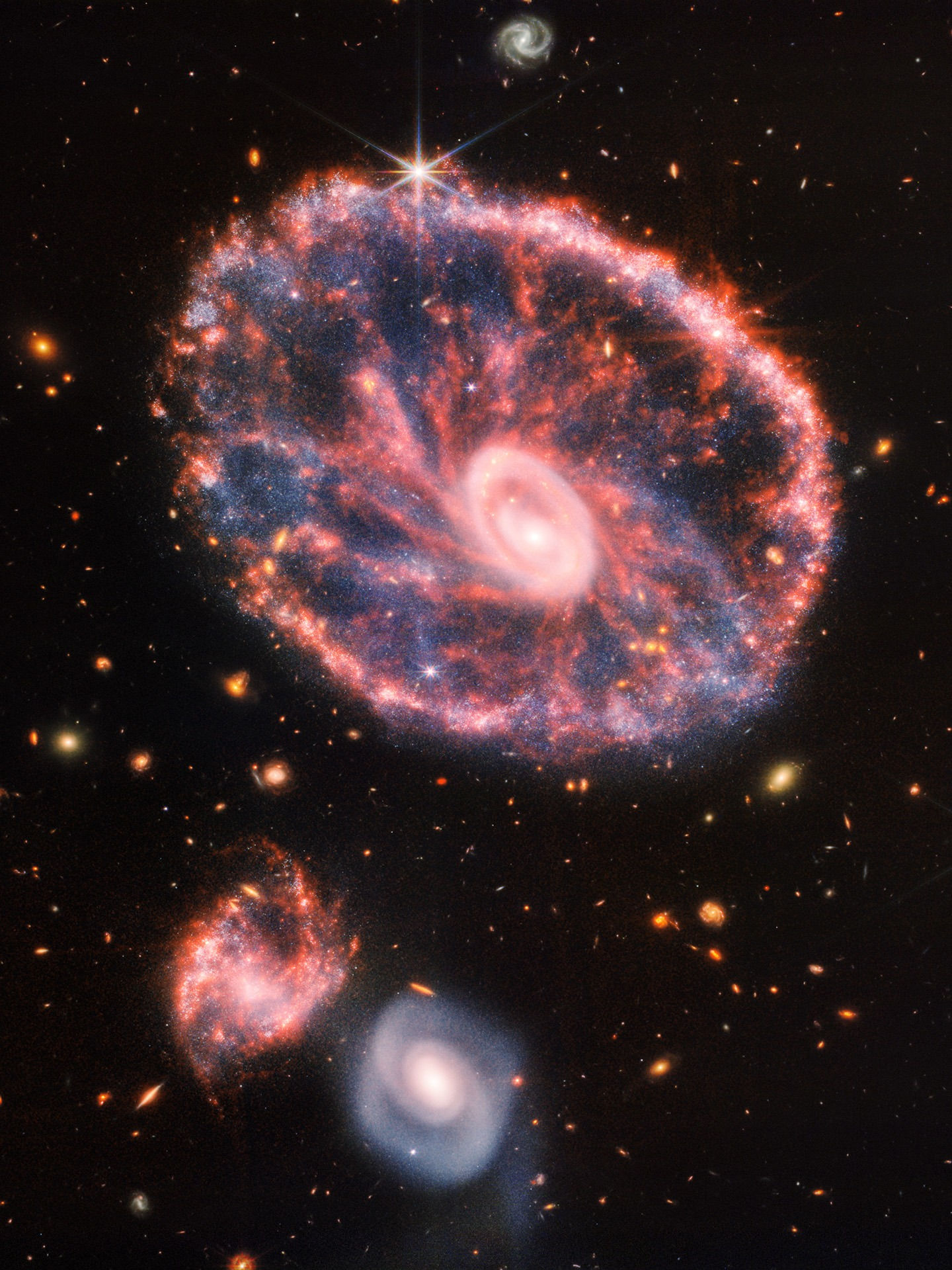Is our Observable Universe a Computer Simulation?
- Phystroid
- Jan 11, 2023
- 5 min read
Updated: Feb 27, 2023
The argument that our universe could be a simulation is based on the possibility that an advanced civilization, or one in the future, might be able to simulate the universe, and create life-like entities that would not be able to distinguish that they are not in a real universe.

There are a number of unexplained phenomena in nature that some people have suggested could be evidence that we are living in a simulated universe. Some of the proposed "bugs" in the simulation include:
1)Quantum Mechanics phenomena like wave-particle duality, superposition and entanglement that do not have a clear explanation in classical physics
2)The fine-tuning of physical constants and laws of nature that seem to be finely tuned for the existence of life
3)The universe's apparent low entropy at the beginning which is a perplexing question in physics, known as the "arrow of time" problem
4)The existence of dark matter and dark energy which are mysterious forms of matter and energy that make up the majority of the universe's mass and energy, but that have not yet been directly observed.
While these phenomena are currently not fully understood, it's important to note that our current understanding of the universe is incomplete, and there may be natural explanations for these phenomena that we have not yet discovered. The scientific community is actively researching these phenomena and working to better understand them.
So, while these unexplained phenomena could be seen as potential "bugs" in a simulated universe, it's important to keep in mind that these are natural phenomena and many different possible explanations have been suggested.
For example the fine-tuning of the physical constants can be explained if the real universe is much larger than what we observe either in space or in time. However, this is probably not the real motivation of those who believe that we live in a simulated universe. Whatever their motivation might be they do underestimate the complexity of the observable Universe, in front of which even the most advanced aliens would be dwarfs.

Simulating the entire observable universe, including all of its complex data and interactions, would require an enormous amount of computing power. The amount of data in the observable universe is thought to be on the order of 10^90 bits, which is an astronomically large number. One approach that scientists have taken to try to simulate the universe is through the use of supercomputers, which can perform calculations at extremely high speeds. These computers use large numbers of processors that can work together in parallel to perform complex simulations. It's worth noting that while we have the capability to simulate certain aspects of the universe, we are still far from simulating the entire universe in a manner that is detailed and accurate enough to truly capture all of its complexity and interactions.
Simulating the entire observable universe, which is estimated to contain around 10^90 atoms, would be an incredibly complex and computationally expensive task. The amount of memory required to store the state of all of these atoms would be on the order of 10^90 bits. In order to perform such a simulation, one would need a machine with an enormous amount of computational power and memory.
The amount of energy required to run a computer capable of simulating the entire observable universe would be astronomical. One way to estimate the energy requirements of such a machine would be to consider the energy consumption of current supercomputers and scale it up to the level needed to simulate 10^90 atoms. Current supercomputers consume on the order of several megawatts of power, which is a very large amount of energy. For example, the Summit supercomputer at Oak Ridge National Laboratory in Tennessee, which is currently one of the most powerful supercomputers in the world, has a peak power consumption of around 13 MW.

To simulate the entire observable universe, we would need a machine that is many orders of magnitude more powerful than Summit. If we assume that the energy requirements scale linearly with the computational power of the machine, we can estimate that such a machine would require on the order of trillions of megawatts, or terawatts, of power.
Additionally, there are many other types of particles and forms of energy present in the universe, such as photons, neutrinos, and dark matter, that would also need to be taken into account in a simulation. These particles interact with one another and with the atoms, so simulating these interactions would require additional computational power.
It's worth noting that even if we had a computer that could simulate the universe, it would not be capable of fully reproducing the universe, because it would lack the ability to simulate the physical processes that give rise to the complexity and diversity of the universe. For example, it would be unable to simulate the interactions between subatomic particles that give rise to the properties of atoms.
The reason is that such a simulation might also be restricted due to principles like quantum mechanics.

The laws of nature do set certain limits to what is practically possible. The laws of physics and the fundamental constants of nature determine the maximum amount of energy that can be harnessed and the maximum amount of computation that can be performed in a given period of time. These limits constrain the performance of physical systems, including computers, and ultimately determine what is and is not possible. For example, the laws of thermodynamics set limits on the maximum efficiency of energy conversion, and the laws of quantum mechanics set limits on the precision of certain measurements. Additionally, the speed of light is a fundamental limit that sets a maximum speed at which information and energy can be transmitted. These limits would also apply to advanced alien civilization, despite they might have different level of technology and understanding of nature. It's also worth noting that our current understanding of the laws of nature is incomplete, and there may be other fundamental limits that we are currently not aware of. As our understanding of the universe deepens, we may discover new constraints that will further limit the performance of physical systems and computers. So, while an advanced alien civilization might have access to technologies and resources that we can't currently imagine, they would still be subject to the same fundamental laws of nature that constrain the performance of physical systems and computers. And simulating the universe would still be a practically impossible task.

Most importantly, in a simulated universe, the simulated entities, such as mathematicians, would still be able to work out the same mathematical ideas as in the real universe. The mathematical laws that govern the universe, such as those of physics and chemistry, are considered to be independent of the underlying physical reality and would still hold true in a simulated universe.
If we therefore live in a simulation, the real Universe should also be 13.8 billion years old, according to what we know. However, 13.8 billion years ago it is impossible that alien life could possibly exist in order to start running the simulation, since just after the Big Bang the Universe was totally inhabitable.
The question that arises is if aliens could possibly run the simulation fast enough so that for them they would only elapse 13.8 minutes, while for us they would elapse 13.8 billion years. Even if something like that was possible, although in my opinion it is impossible, they would certainly be limited by the fact that once they create the simulation they they can't intervene with the simulation without creating a "bug". In our case they would also be limited by the speed of light, let alone the astronomical increase in the power which such a simulator would consume. The timescale between physical phenomena that we observe is something real and dependent on the intrinsic properties of matter, and not something that can be arbitrary compressed or expanded according to the hypothetical tastes of an alien civilization who runs a simulator.
These are just some of the arguments against the idea that we live in a simulation and I hope that this article will be a food of thought for those bending their minds around this interesting thought experiment.






























































































Commentaires